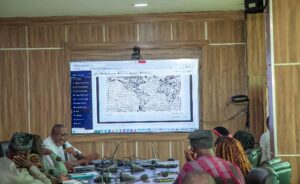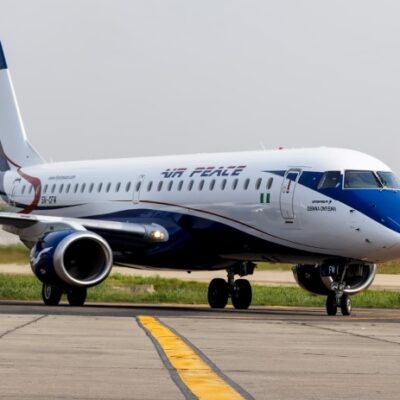
BY OLAPEJU OLUBI
The Nigerian Meteorological Agency (NiMet) has marked a groundbreaking achievement in Africa’s aviation sector with the successful deployment of a centralized Secure Aviation Data Information Service (SADIS) API platform, a modern innovation that promises to transform flight safety and operational efficiency across Nigeria’s airspace.
The development, which positions Nigeria as a continental pioneer in aviation weather technology, replaces the legacy File Transfer Protocol (FTP) system with a cutting-edge, System-Wide Information Management (SWIM)-compliant architecture.
Managed globally by the UK Met Office under the International Civil Aviation Organization (ICAO), the SADIS API provides secure, real-time access to the World Area Forecast System (WAFS) datasets and other mission-critical meteorological services.
Under this new platform, aviation stakeholders—pilots, air traffic managers, forecasters, and operators—will have instant access to high-resolution forecasts, charts, and observations essential for safe and efficient flight operations.
Experts say the shift not only strengthens Nigeria’s compliance with ICAO and World Meteorological Organization (WMO) standards but also enhances the country’s competitiveness in global aviation.
Professor Charles Anosike, Director-General/CEO of NiMet and Nigeria’s Permanent Representative with the WMO, described the milestone as a strategic leap forward for the nation’s aviation safety architecture.
“This innovation demonstrates NiMet’s leadership in embracing modern technologies that strengthen aviation safety and efficiency while ensuring compliance with ICAO and WMO standards.
The SADIS platform is a critical step in modernizing Nigeria’s aviation weather services,” Anosike stated.
The upgraded SADIS system will now deliver a broad spectrum of meteorological intelligence.
Among them are: WAFS Gridded Data (including forecasts for icing, turbulence, cumulonimbus clouds, and tropopause height); WAFS Significant Weather (SIGWX) charts (covering jet streams, volcanic ash plumes, and tropical cyclone activity); Operational Meteorological (OPMET) Data, including METAR, TAF, and SPECI reports used by pilots worldwide for operational decision-making.
NiMet officials emphasize that this transition is not just about data delivery but about safer skies, lower operational risks, and cost efficiencies for airlines and the broader aviation ecosystem.
Aviation stakeholders believe this breakthrough will be particularly impactful in West Africa, where weather-related disruptions remain a challenge.
By leveraging modern SADIS technologies, Nigeria can now better support regional and international carriers using its airspace, further positioning the country as a hub for aviation safety and innovation in Africa.
Industry experts also note that timely and secure access to weather intelligence is a cornerstone of aviation economics, reducing fuel costs, minimizing delays, and preventing avoidable diversions.
With this rollout, NiMET said Nigeria joins the ranks of advanced nations implementing digitally integrated aviation weather systems, ensuring its skies remain some of the safest and most predictable on the continent.
Olapeju is a journalist and aviation reporter.





